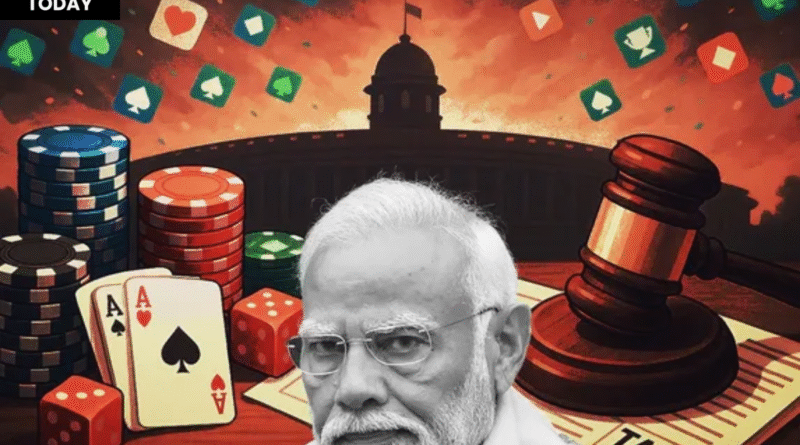Lok Sabha Passes Bill to Ban Online Money Games, Allows E-Sports
The Lok Sabha has passed the Promotion and Regulation of Online Gaming Bill, 2025, which aims to ban online money games and related services such as banking support and advertisements. The Bill was introduced by Union IT Minister Ashwini Vaishnaw.
Key Provisions of the Bill
- Definition: An online money game is any game played on the internet where players pay fees, deposit money, or put stakes with the expectation of monetary or material rewards. The definition specifically excludes e-sports.
- Punishment for Violations:
- Offering online money gaming services: up to 3 years imprisonment, or ₹1 crore fine, or both.
- Advertising such services: up to 2 years imprisonment, or ₹50 lakh fine, or both.
- Regulatory Authority: The Central Government will set up an Authority to decide if any online game qualifies as an online money game. Officials may be given wide powers, including arrest and property search without warrant on reasonable suspicion.
- Blocking Content: Any digital content promoting online money games can be blocked, similar to the provisions under Section 69A of the IT Act, 2000.
- Global Reach: The law will apply not only within India but also to gaming services operating from outside India.
E-Sports and Social Games Exempted
The Bill makes a clear distinction between online money games and e-sports.
- E-sports are competitive games held in organized events, either individually or in teams, based on skill, strategy, and agility.
- These may involve entry fees or prize money but cannot include betting or wagering.
- They will be recognised under the National Sports Governance Act, 2025.
The government may also encourage online social games meant for education or recreation, provided they do not involve money betting.
Purpose Behind the Law
The Bill highlights the dangers of unchecked online money games, including:
- Compulsive and addictive behaviour.
- Financial losses and mental health problems.
- Exploitation of young and vulnerable users.
- Celebrity endorsements that mislead players.
- Links to money-laundering, fraud, and even terrorism financing.
The government explained that the law is meant to curb harmful gaming practices while promoting safe and innovative digital gaming, encouraging growth in the e-sports and social gaming sectors.





